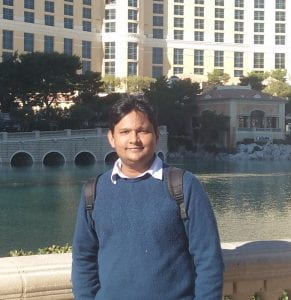Current Members
Thomas B. Wild
Research Professor (Center for Global Sustainability (CGS), School of Public Policy, University of Maryland) &
Affiliate Research Professor (Department of Civil and Environmental Engineering, University of Maryland) &
Senior Research Scientist (Pacific Northwest National Laboratory, Joint Global Change Research Institute) &
Assistant Research Professor (Earth System Science Interdisciplinary Center (ESSIC), University of Maryland)
Dr. Wild is currently an Assistant Research Professor at the Earth System Science Interdisciplinary Center (ESSIC) at the University of Maryland. He is also jointly appointed as a Research Scientist at the Pacific Northwest National Laboratory’s Joint Global Change Research Institute. Broadly, his research focuses on identifying holistic solutions to complex systems challenges that occur at the intersection of disciplines. He seeks to craft methodological advances capable of improving the way we characterize, visualize, and manage coupled human-natural systems confronting uncertainty and change, and the infrastructure that drives their interactions. His work has spanned planning and management challenges in water resources and environmental systems, food-energy-water nexus systems, and deep decarbonization. This research has contributed to identifying and mitigating food-energy-water tradeoffs and conflicts, developing sustainable hydropower systems, managing fluvial and stormwater quality, equitably sharing transboundary resources, and identifying pathways for deeply decarbonizing the U.S. and Colombian economies. He has extensive international development experience related to water and energy infrastructure, including multiple projects in Asia and Latin America. In these projects, he often served in a stakeholder engagement and capacity building role, training large multidisciplinary groups to understand and use complex modeling tools. Dr. Wild holds M.S. and Ph.D. degrees from Cornell University in civil engineering, and a B.S. degree from the University of Maryland in civil engineering.
Kamal Chowdhury
Postdoctoral Associate (University of Maryland, Earth System Science Interdisciplinary Center (ESSIC))
Dr. Kamal Chowdhury is a postdoctoral associate at the Earth System Science Interdisciplinary Center (ESSIC) at the University of Maryland. He is also part of the Global Change Intersectoral Modeling System research team, led by the Pacific Northwest National Laboratory. Kamal’s research focuses on resilient operations and sustainable planning of water and energy systems. He uses the Global Change Analysis Model (GCAM) with a focus to improve its representation of reservoir operations at river basins across the globe. He also works on operations and planning of hydropower and overall energy systems of Southeast Asia and Southern Africa considering the effects of droughts, climate change, solar and wind resources, and transmission facilities. These works support policy decisions to minimize operating and investment costs, greenhouse gas emissions, and socio-environmental impacts of water-energy infrastructures. Kamal developed PowNet – a least-cost optimization model for power systems analysis, and contributed to VIC-Res – a hydrologic model to simulate reservoir operations. Before joining ESSIC, Kamal completed postdoctoral jobs at the Singapore University of Technology and Design and University of California Santa Barbara. He holds a PhD in civil engineering from the University of Newcastle, a graduate certificate in engineering geology from University of Twente, and a B.S. in civil and environmental engineering from Shahjalal University of Science and Technology.
Joudat Bint Khalil
Faculty Assistant (University of Maryland, Earth System Science Interdisciplinary Center (ESSIC))
Joudat Bint Khalil is currently a Faculty Assistant at the Earth System Science Interdisciplinary Center (ESSIC) at the University of Maryland. Prior to this, she worked as a Project Lead at the Centre for Water Informatics and Technology (WIT) at the Lahore University of Management Sciences (LUMS), Pakistan. Her research areas include developing national energy models and designing low emission scenarios for climate mitigation. Her interests extend to understanding multisector dynamics, the interdependencies across sectors and their impact on sectoral transitions and sustainable resource management. As a part of her graduate research, she worked on ground-level ozone trends to comprehend the relative yield losses for crops such as maize, wheat and soybean during the winter smog season. Joudat holds a master’s degree in electrical engineering from Lahore University of Management Sciences.

